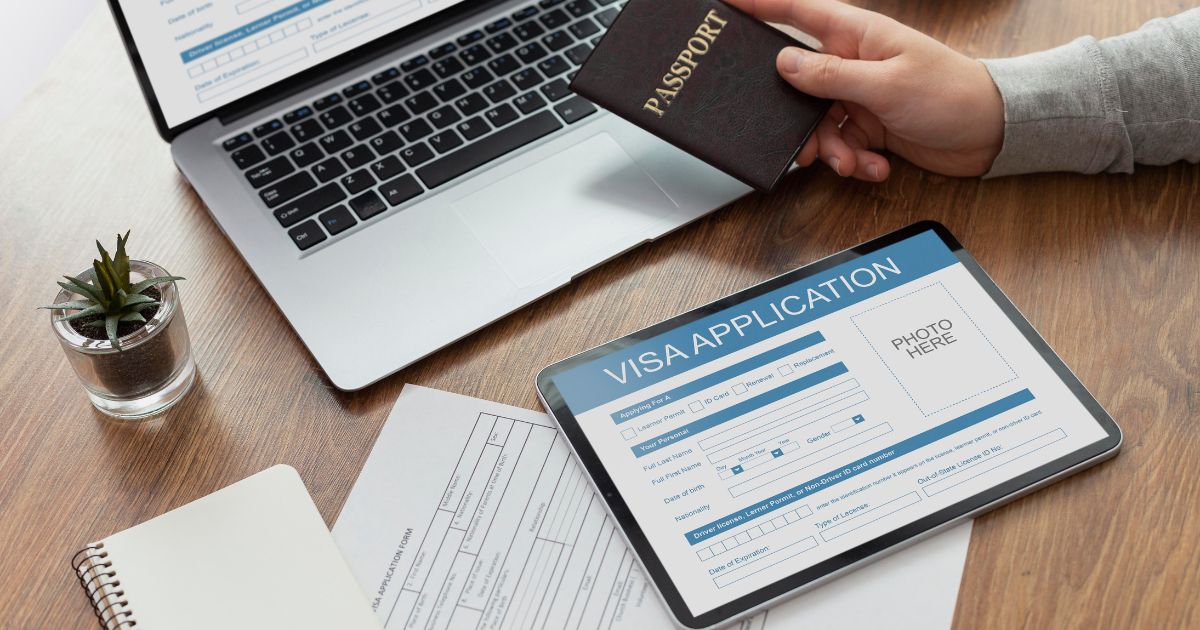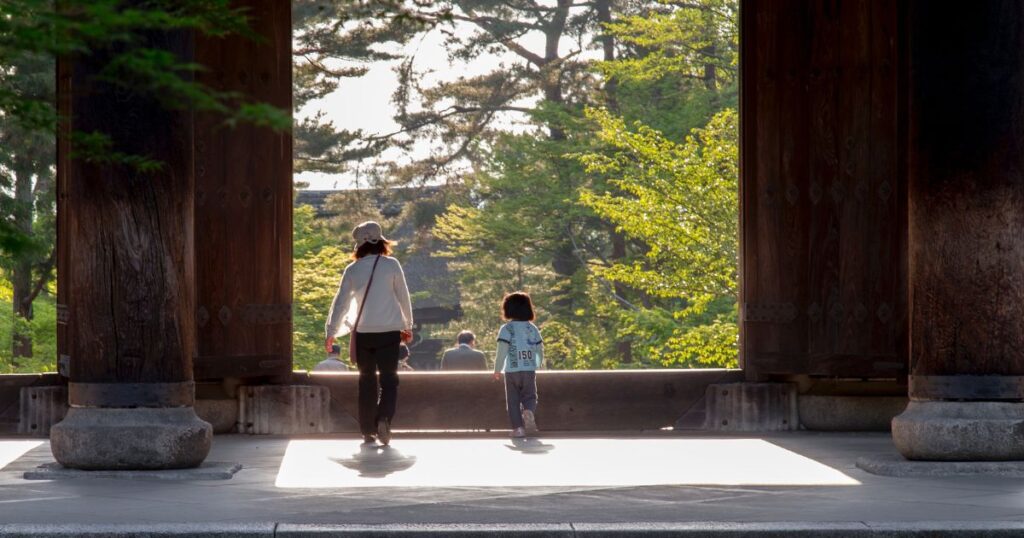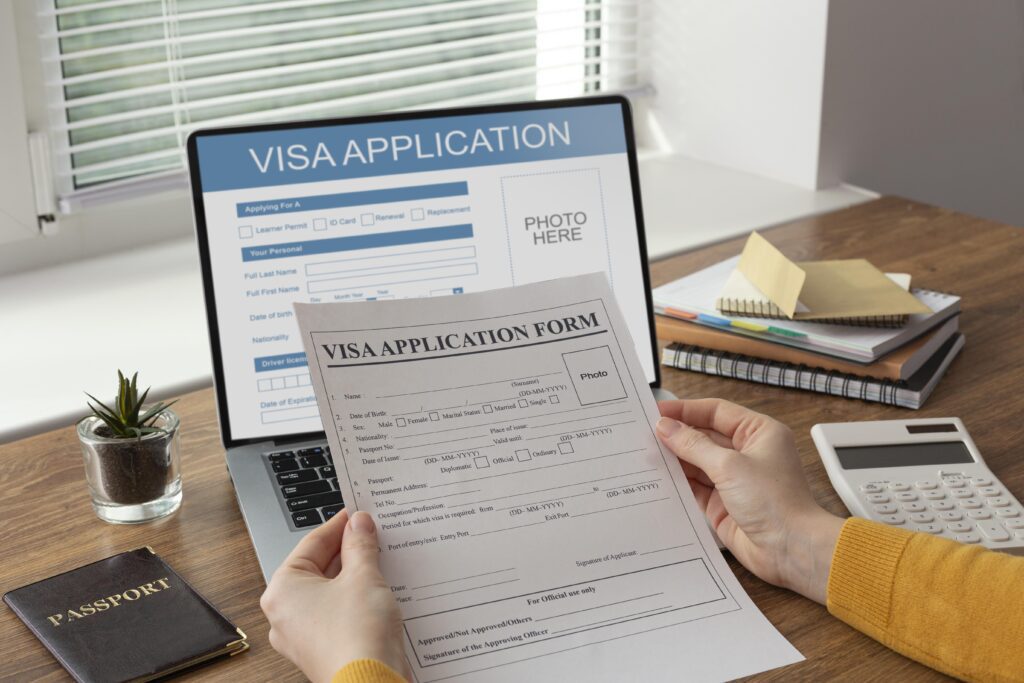Best Way How To Get Visa For Japan 2024
Japan, with its rich cultural heritage, stunning landscapes, and advanced technology, has become an increasingly popular destination for travelers and expatriates alike. Whether you’re planning a short-term visit or considering a long-term stay in this beautiful country, understanding the visa application process is crucial. In this comprehensive guide, we will walk you through the steps to obtain how to get visa for Japan, offering insights into the various types of visas available and the application procedures involved.
Table of Contents
Japanese Introduction E Visa Process?
Recently, Japan has introduced an efficient and convenient e-visa system, making it easier for travelers to obtain the necessary visa to enter the country. The e-Visa system is designed to simplify and expedite the application process for individuals who wish to visit Japan for tourism, business, or other approved purposes. This introduction provides an overview of the Japanese e-Visa process, outlining the key steps and important information you need to know before applying.

1. Determine Your Eligibility:
- Before applying for a Japanese e-Visa, it’s essential to confirm your eligibility for the specific visa category that matches your intended purpose of travel. Common e-visa categories include tourist visas, business visas, and short-term visit visas for family or friends. Review the official guidelines to ensure you meet the eligibility criteria.
2. Gather Required Documents:
- Collect all necessary documentation as per the requirements of your chosen visa category. Common documents include a valid passport, proof of accommodation, a detailed travel itinerary, financial statements, and a recent passport-sized photograph. Ensure that your documents are up to date and meet the specified criteria.
3. Online Application:
- Visit the official website of the Japanese Ministry of Foreign Affairs or the Japanese embassy/consulate in your country to access the online e-Visa application form. Complete the form accurately, providing all requested information. Double-check for accuracy before submitting.
4. Payment of Visa Fees:
- Pay the required visa processing fees online using the approved payment methods. Keep a record of your payment confirmation for reference.
5. Submission of Application:
- After completing the application and payment, submit your e-Visa application electronically. Ensure that all required documents are uploaded as specified.
6. Application Review:
- The Japanese authorities will review your application and documents. This process may take several business days. Be prepared to provide additional information or attend an interview if requested.
7. Receive e-Visa Approval:
- Once your application is approved, you will receive an e-Visa approval notification via email. This notification will include a reference number, which you should keep for your records.
8. Print Your e-Visa:
- Print a copy of your approved e-Visa. This document must be presented to the immigration authorities upon your arrival in Japan.
9. Travel to Japan:
- Plan your trip to Japan in accordance with the dates specified on your e-Visa. Be sure to carry all required documents, including your passport and e-Visa, for presentation to immigration officials.
10. Arrival in Japan:
- Upon arrival in Japan, present your e-Visa and other relevant documents to immigration authorities for inspection. Ensure that you comply with the visa conditions during your stay.
It’s important to note that the e-Visa process may vary slightly depending on your nationality and the specific embassy or consulate handling your application. Therefore, it is advisable to check the official website of the Japanese embassy or consulate in your country for the most accurate and up-to-date information regarding the e-Visa process and requirements.
By following these steps and adhering to the guidelines provided by Japanese authorities, you can efficiently obtain your e-Visa and enjoy your visit to Japan.
Types of Japanese Visas: How To Get Visa For Japan
Before diving into the application process, it’s essential to know which type of visa suits your purpose of visiting Japan. The Japanese government offers several visa categories, each tailored to specific activities or objectives:
A. Tourist Visa (Temporary Visitor Visa):

Certainly, here are the key points about Japan’s Tourist Visa (Temporary Visitor Visa) presented in bullet form:
- Purpose: The Japan Tourist Visa, also known as the Temporary Visitor Visa, is designed for individuals planning to visit Japan for tourism, leisure, visiting friends or relatives, or attending short-term cultural or recreational activities.
- Duration: Typically, the Tourist Visa allows stays of up to 90 days. However, the exact duration may vary based on your nationality and specific circumstances.
- Eligibility: To qualify for a Tourist Visa, you need to meet certain eligibility criteria. These typically include having a valid passport, a clear intention to engage in non-work-related activities, and sufficient funds to cover your stay in Japan.
- Application Process: The application process involves submitting the necessary documents to the nearest Japanese embassy or consulate in your home country. You may need to fill out a visa application form, provide passport-sized photos, and pay the applicable visa fee.
- Supporting Documents: While the specific requirements can vary by location, common supporting documents include:
- A completed visa application form with accurate information.
- A valid passport with a minimum of six months’ validity beyond your intended departure date from Japan.
- Travel itinerary, including details of your accommodation and planned activities in Japan.
- Proof of sufficient funds to cover your expenses during your stay in Japan, such as bank statements or a letter of sponsorship.
- A return flight ticket or proof of onward travel to demonstrate your intention to leave Japan after your visit.
- Visa Interview: In some cases, you may be required to attend a visa interview at the Japanese embassy or consulate. Be prepared to answer questions about your travel plans and provide additional information if requested.
- Visa Fee: Pay the visa application fee, which varies depending on your nationality and the processing time.
- Processing Time: The processing time for a Tourist Visa application may vary, so it’s advisable to apply well in advance of your intended travel date.
- Entry and Exit: Upon arrival in Japan, you’ll need to go through immigration control. Present your passport with the Tourist Visa to the immigration officer. Make sure to adhere to the conditions of your visa during your stay and exit Japan before the visa expires to avoid any immigration issues.
- Extension: Tourist Visas are typically not extendable. If you wish to stay in Japan beyond the visa’s validity, you’ll need to leave the country and reapply for a new visa if necessary.
- Additional Information: Keep in mind that visa requirements and procedures can change, so it’s essential to check with the nearest Japanese embassy or consulate or visit their official website for the most up-to-date information before starting your visa application process.
B. Work Visa:

Certainly, here are the key points about Japan’s Work Visa presented in bullet form:
- Purpose: A Japan Work Visa is required for individuals planning to work in Japan. This visa category includes various subtypes, such as Engineer, Specialist in Humanities/International Services, and Skilled Labor, depending on your job and qualifications.
- Eligibility: To be eligible for a Work Visa, you typically need a job offer from a Japanese employer or institution. The specific requirements and qualifications may vary depending on the subcategory of the Work Visa.
- Application Process: The application process for a Work Visa involves several steps, including:
- Obtaining a Certificate of Eligibility (COE) from your sponsoring employer or institution in Japan. This document confirms your eligibility for a Work Visa.
- Submitting the COE, along with other required documents, to the nearest Japanese embassy or consulate in your home country.
- Completing the visa application form and providing supporting documents, such as a valid passport, passport-sized photos, and a detailed job offer letter.
- Supporting Documents: Common supporting documents for a Work Visa application may include:
- A completed visa application form with accurate information.
- A valid passport with a minimum of six months’ validity beyond your intended departure date from Japan.
- The Certificate of Eligibility (COE) is issued by your sponsoring employer or institution in Japan.
- Passport-sized photos.
- Proof of your academic or professional qualifications if required for your specific job category.
- A detailed employment contract or job offer letter outlining the terms and conditions of your employment.
- Visa Interview: In some cases, you may be required to attend a visa interview at the Japanese embassy or consulate. Be prepared to discuss your job, qualifications, and other relevant details.
- Visa Fee: Pay the applicable visa application fee, which may vary depending on your nationality and the processing time.
- Processing Time: The processing time for a Work Visa application can vary. It’s advisable to start the application process well in advance of your intended travel date.
- Entry and Work Permissions: Once your Work Visa is approved, you can enter Japan and start working as per the conditions specified in your visa. Be sure to adhere to the visa’s terms and regulations throughout your stay.
- Renewal: Work Visas are typically issued for a specific duration, often one to three years. If you wish to continue working in Japan, you’ll need to renew your visa before it expires. This process may require a new Certificate of Eligibility (COE) from your employer or institution.
- Permanent Residency: After several years of continuous legal residence and meeting certain criteria, you may become eligible to apply for permanent residency in Japan, allowing you to live and work in Japan indefinitely.
- Important Note: Visa requirements and procedures can change, so it’s essential to check with the nearest Japanese embassy or consulate or visit their official website for the most up-to-date information before starting your Work Visa application process.
C. Student Visa:

Certainly, here are the key points about Japan’s Student Visa presented in bullet form:
- Purpose: A Japan Student Visa is required for individuals planning to study in Japan. This visa allows foreign students to enroll in Japanese educational institutions and pursue academic programs.
- Eligibility: To be eligible for a Student Visa, you typically need to have been accepted by a recognized Japanese educational institution, such as a university, college, language school, or vocational school. You must also demonstrate sufficient financial support to cover tuition and living expenses.
- Application Process: The application process for a Student Visa includes the following steps:
- Obtain a Certificate of Eligibility (COE) from your sponsoring educational institution in Japan. This document confirms your eligibility for a Student Visa.
- Submit the COE, along with other required documents, to the nearest Japanese embassy or consulate in your home country.
- Complete the visa application form and provide supporting documents, such as a valid passport, passport-sized photos, and proof of financial support.
- Supporting Documents: Common supporting documents for a Student Visa application may include:
- A completed visa application form with accurate information.
- A valid passport with a minimum of six months’ validity beyond your intended departure date from Japan.
- The Certificate of Eligibility (COE) is issued by your sponsoring educational institution in Japan.
- Passport-sized photos.
- Proof of sufficient funds to cover tuition and living expenses while in Japan.
- Academic transcripts and certificates as required by your educational institution.
- Visa Interview: In some cases, you may be required to attend a visa interview at the Japanese embassy or consulate. Be prepared to discuss your educational plans and provide additional information if requested.
- Visa Fee: Pay the applicable visa application fee, which may vary depending on your nationality and the processing time.
- Processing Time: The processing time for a Student Visa application can vary. It’s advisable to start the application process well in advance of your intended enrollment date.
- Entry and Study Permissions: Once your Student Visa is approved, you can enter Japan and begin your academic program at the educational institution specified in your COE. Ensure that you comply with the visa’s terms and regulations throughout your study period.
- Visa Extension: Student Visas are typically issued for the duration of your academic program. If your program extends beyond the visa’s validity, you may need to apply for an extension. Consult with your educational institution and the Immigration Bureau of Japan for guidance on the extension process.
- Part-Time Work: Student Visa holders are generally allowed to engage in part-time work in Japan under certain conditions. Be sure to familiarize yourself with the specific work limitations and regulations associated with your Student Visa.
- Permanent Residency: After completing your studies and meeting certain criteria, you may become eligible to apply for permanent residency in Japan, allowing you to live and work in Japan indefinitely.
- Important Note: Visa requirements and procedures can change, so it’s essential to check with the nearest Japanese embassy or consulate or visit their official website for the most up-to-date information before starting your Student Visa application process.
D. Spouse or Dependent Visa:

Certainly, here are the key points about Japan’s Spouse or Dependent Visa presented in bullet form:
- Purpose: Japan’s Spouse or Dependent Visa is intended for family members of individuals holding a valid Japanese work or student visa. It allows spouses and dependent family members to accompany or join their loved ones in Japan.
- Eligibility: To be eligible for a Spouse or Dependent Visa, you must be a family member (spouse or dependent child) of a foreign national holding a valid Japanese work or student visa. The sponsoring family member in Japan must be able to provide financial support for the dependents.
- Application Process: The application process for a Spouse or Dependent Visa involves the following steps:
- The family member with a valid Japanese work or student visa (the sponsor) initiates the process by obtaining a Certificate of Eligibility (COE) from the appropriate Japanese authorities.
- The COE serves as the basis for the family member abroad (spouse or dependent) to apply for a Spouse or Dependent Visa at the nearest Japanese embassy or consulate in their home country.
- The applicant must complete the visa application form, and provide supporting documents, such as a valid passport, passport-sized photos, and proof of the family relationship with the sponsor.
- Supporting Documents: Common supporting documents for a Spouse or Dependent Visa application may include:
- A completed visa application form with accurate information.
- A valid passport with a minimum of six months’ validity beyond the intended departure date from Japan.
- The Certificate of Eligibility (COE) is issued by the Japanese authorities for the sponsoring family member.
- Passport-sized photos.
- Proof of the family relationship, such as marriage certificates for spouses or birth certificates for dependent children.
- Visa Interview: Depending on the embassy or consulate’s requirements, you may be required to attend a visa interview. During the interview, you may need to discuss your family relationship and provide additional information if requested.
- Visa Fee: Pay the applicable visa application fee, which may vary depending on your nationality and the processing time.
- Processing Time: The processing time for a Spouse or Dependent Visa application can vary. It’s advisable to start the application process well in advance of your intended travel date.
- Entry and Stay: Once the Spouse or Dependent Visa is approved, you can enter Japan and stay in the country as long as the sponsoring family member’s visa remains valid. It’s important to comply with the visa’s terms and regulations during your stay.
- Work Permissions: Spouse or Dependent Visa holders are generally allowed to work in Japan without additional work authorization, subject to certain conditions and limitations. Be sure to understand the specific work regulations associated with this visa category.
- Extension: If the sponsoring family member’s visa is extended or renewed, you can also apply to extend your Spouse or Dependent Visa to match the new validity period.
- Permanent Residency: After several years of continuous legal residence in Japan, family members holding Spouse or Dependent Visas may become eligible to apply for permanent residency, allowing them to live in Japan indefinitely.
- Important Note: Visa requirements and procedures can change, so it’s essential to check with the nearest Japanese embassy or consulate or visit their official website for the most up-to-date information before starting your Spouse or Dependent Visa application process.
E. Business Visa:

Certainly, here are the key points about Japan’s Business Visa presented in bullet form:
- Purpose: Japan’s Business Visa is designed for foreign nationals who plan to engage in commercial activities, attend business meetings, or participate in conferences and seminars in Japan.
- Eligibility: To be eligible for a Business Visa, you typically need to demonstrate that your visit to Japan is for business purposes. This could include meetings with clients or partners, market research, signing contracts, or attending conferences.
- Application Process: The application process for a Business Visa involves the following steps:
- Contact the nearest Japanese embassy or consulate in your home country to inquire about the specific requirements and procedures.
- Complete the visa application form with accurate information.
- Provide supporting documents, such as a valid passport, passport-sized photos, a letter of invitation from the Japanese host company or organization, and details of your business activities in Japan.
- Supporting Documents: Common supporting documents for a Business Visa application may include:
- A completed visa application form.
- A valid passport with a minimum of six months’ validity beyond your intended departure date from Japan.
- A formal letter of invitation from the Japanese host company or organization, outlining the purpose and duration of your visit.
- Passport-sized photos.
- Details of your planned business activities in Japan, such as meeting schedules, conference agendas, or contracts to be signed.
- Visa Interview: Depending on the requirements of the Japanese embassy or consulate, you may be required to attend a visa interview. Be prepared to discuss your business plans and provide additional information if requested.
- Visa Fee: Pay the applicable visa application fee, which may vary depending on your nationality and the processing time.
- Processing Time: The processing time for a Business Visa application can vary. It’s advisable to apply well in advance of your intended travel date, especially if you have a busy business schedule in Japan.
- Entry and Stay: Once your Business Visa is approved, you can enter Japan and engage in the specified business activities outlined in your visa application. Be sure to adhere to the visa’s terms and regulations during your stay.
- Extension: If your business activities in Japan need to be extended beyond the initial visa’s validity, you may apply for an extension. Consult with the Japanese Immigration Bureau or the nearest embassy/consulate for guidance on the extension process.
- Work Permissions: Business Visa holders are generally allowed to engage in business-related activities in Japan. However, they are not permitted to engage in paid employment unrelated to their business activities.
- Permanent Residency: Business Visa holders interested in residing in Japan for the long term may explore the possibility of applying for permanent residency after meeting certain criteria.
- Important Note: Visa requirements and procedures can change, so it’s essential to check with the nearest Japanese embassy or consulate or visit their official website for the most up-to-date information before starting your Business Visa application process.
F. Permanent Resident Visa:

Certainly, here are the key points about Japan’s Permanent Resident Visa presented in bullet form:
- Purpose: Japan’s Permanent Resident Visa, often referred to as “eijūken” (永住権), is designed for foreign nationals who wish to reside in Japan on a long-term or indefinite basis. It grants the holder the right to live and work in Japan without the need for a specific work or student visa.
- Eligibility: To be eligible for a Permanent Resident Visa in Japan, you typically need to meet specific criteria, including:
- Demonstrating several years of continuous legal residence in Japan. The exact duration may vary based on the circumstances.
- Proving that you have sufficient financial stability and good conduct during your time in Japan.
- Meeting certain income and tax payment requirements.
- Demonstrating proficiency in the Japanese language and knowledge of Japanese culture.
- Application Process: The application process for a Permanent Resident Visa involves the following steps:
- Gather the required documents, which can include proof of residence, tax records, certificates of employment, and language proficiency test results.
- Complete the Permanent Resident Visa application form.
- Submit your application and supporting documents to the nearest Japanese immigration office.
- Supporting Documents: Common supporting documents for a Permanent Resident Visa application may include:
- Proof of continuous legal residence in Japan, such as residence cards or previous visas.
- Tax records and financial statements to demonstrate your financial stability.
- Certificates of employment and salary details.
- Certificates of language proficiency and knowledge of Japanese culture.
- Documents related to family members residing in Japan, if applicable.
- Processing Time: The processing time for a Permanent Resident Visa application can vary, but it generally takes several months to process. It’s advisable to start the application process well in advance of your intended time frame.
- Entry and Stay: Once your Permanent Resident Visa is approved, you can reside in Japan indefinitely. This visa allows you to live and work in Japan without the need for additional work or student visas.
- Work and Other Activities: As a Permanent Resident Visa holder, you have the freedom to work in Japan without restrictions, change jobs, and engage in various activities without the limitations associated with other visa categories.
- Permanent Residency Benefits: Holders of a Permanent Resident Visa can enjoy various benefits, including access to the Japanese social security system, healthcare, and education. They also have the option to apply for Japanese citizenship after meeting certain criteria.
- Renewal: Unlike temporary visas, a Permanent Resident Visa does not need to be renewed, provided you maintain your legal residence in Japan and meet the requirements.
- Important Note: The eligibility criteria, required documents, and application procedures for a Permanent Resident Visa in Japan can be complex. It’s crucial to consult with the Japanese Immigration Bureau or seek legal advice to ensure that you meet all the requirements and have a successful application.
Determine Your Visa Eligibility

Once you’ve identified the purpose of your visit, you need to confirm that you meet the eligibility criteria for the chosen visa category. Specific requirements can vary, but common eligibility factors include:
a. Valid passport with at least six months’ validity beyond your planned departure date.
b. Sufficient funds to cover your stay in Japan or proof of financial support.
c. A clean criminal record and no prior immigration violations in Japan.
d. A detailed and accurate visa application form.
e. Additional documents specific to your visa type (e.g., letter of invitation from a Japanese host, enrollment certificate for student visas, or employment contract for work visas).
Gather the Required Documents:
Before you start the visa application process, gather all the necessary documents to avoid delays. These documents may include:
a. Visa application form: Download and complete the visa application form from the website of the Japanese embassy or consulate in your home country. Ensure all information is accurate and up-to-date.
b. Passport-size photos: Prepare recent passport-size photos that adhere to the specifications outlined in the visa application guidelines.
c. Valid passport: Ensure your passport has at least six months of validity beyond your intended date of departure from Japan.
d. Letter of explanation: Write a detailed letter explaining the purpose of your visit, including your travel itinerary, accommodation arrangements, and any other relevant information.
e. Financial documents: Depending on your visa type, provide bank statements, tax returns, or other financial evidence to prove your ability to cover your expenses while in Japan.
f. Certificate of Eligibility (COE): For certain visa categories like work or student visas, you may need a COE issued by your sponsoring institution or employer in Japan.
g. Proof of ties to your home country: To demonstrate your intention to return home after your visit, provide documents such as a letter from your employer, proof of property ownership, or family ties.
h. Other supporting documents: Depending on your specific visa category, additional documents such as marriage certificates, transcripts, or job offer letters may be required.

Apply for a Visa:
Once you have gathered all the necessary documents, you can proceed to submit your visa application. Follow these steps:
a. Contact the nearest Japanese embassy or consulate in your home country: Visit their website or call to confirm the application process, fees, and any additional requirements specific to your location.
b. Schedule an appointment: If required, schedule an appointment to submit your visa application in person. Some countries may allow you to apply by mail or through a designated visa processing center.
c. Pay the visa fee: Pay the required visa application fee, which varies depending on your nationality and visa type. Keep the receipt as proof of payment.
d. Attend the visa interview: If necessary, attend a visa interview at the embassy or consulate. Be prepared to answer questions about your travel plans and provide any additional information or documents requested by the consular officer.
e. Wait for processing: The processing time for a Japanese visa can vary, so check with the embassy or consulate for estimated processing times. It’s advisable to apply well in advance of your planned travel date.

Visa Approval and Entry into Japan:
If your visa application is approved, you will receive a visa sticker affixed to your passport. Make sure to check the visa’s validity period and the number of entries allowed.
Upon arrival in Japan:
a. Go through immigration: When you arrive in Japan, you will need to go through immigration at the airport or port of entry. Present your passport with the visa sticker and any supporting documents if requested.
b. Comply with visa conditions: Ensure that you adhere to the conditions of your visa during your stay in Japan. Violating these conditions could result in deportation or future visa denials.
c. Extend or renew your visa: If you need to extend or renew your visa while in Japan, you must do so before your current visa expires. Consult with the Immigration Bureau of Japan for guidance on the process.

Conclusion:
Obtaining a visa for Japan is a necessary step for anyone planning to visit, work, study, or reside in the country. By understanding the different visa categories, eligibility requirements, and the application process outlined in this comprehensive guide, you’ll be better prepared to navigate the intricacies of Japanese immigration and embark on your journey to this captivating and culturally rich nation. Remember to plan ahead, gather all required documents, and follow the rules and regulations to make your visa application process as smooth as possible. Enjoy your adventure in the Land of the Rising Sun!
-
© Copyright 2020 | www.pairstravel.com
